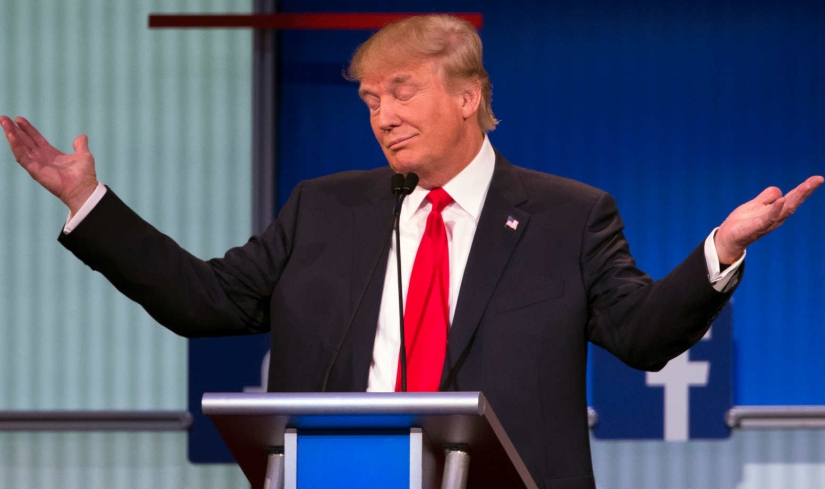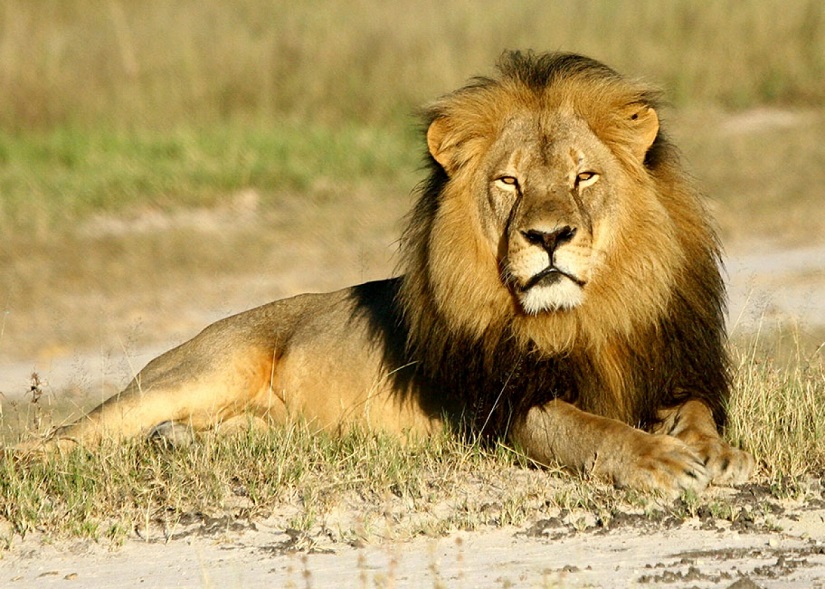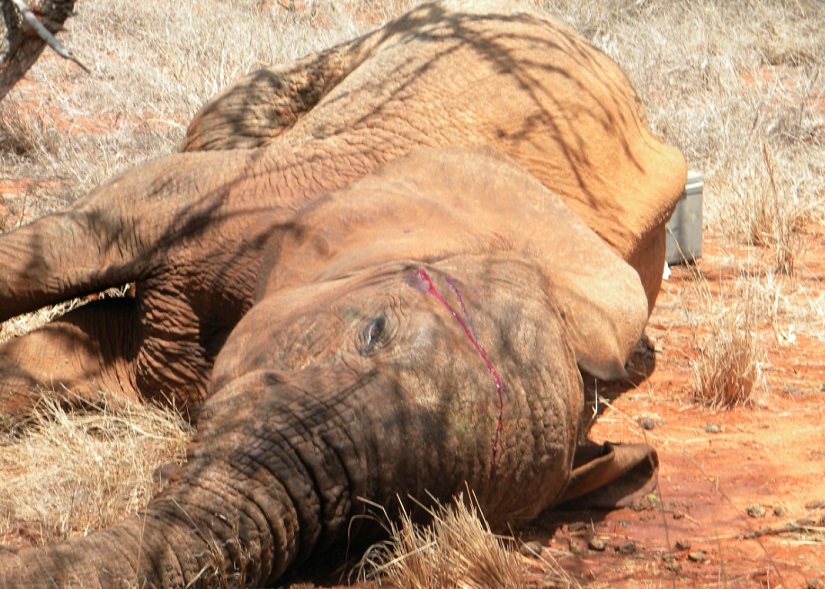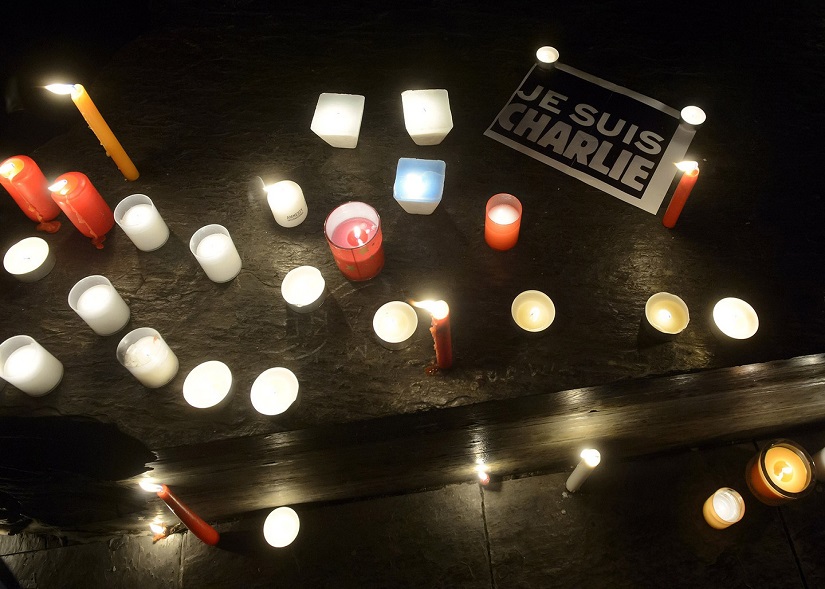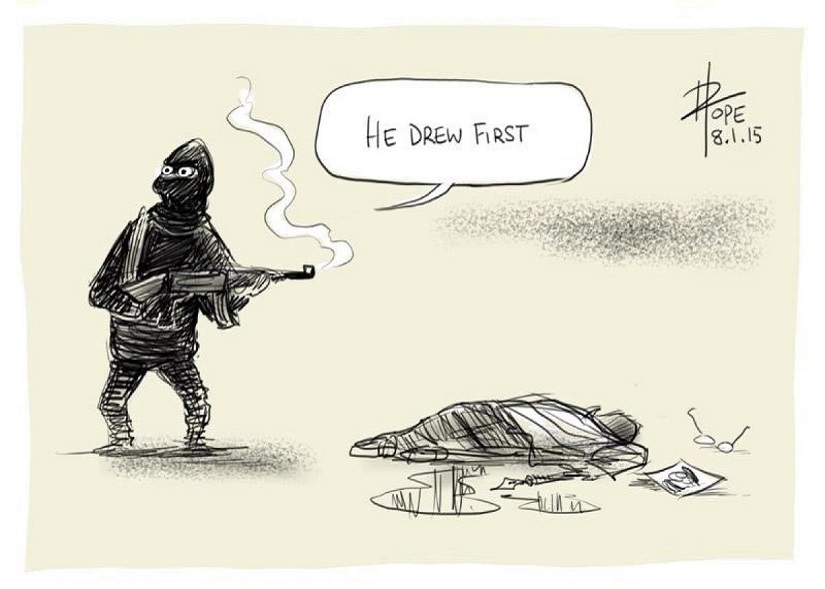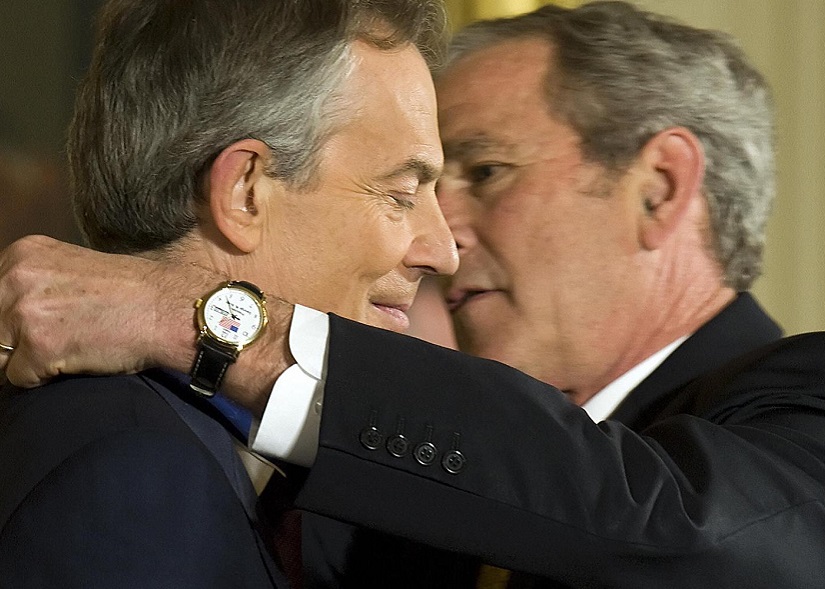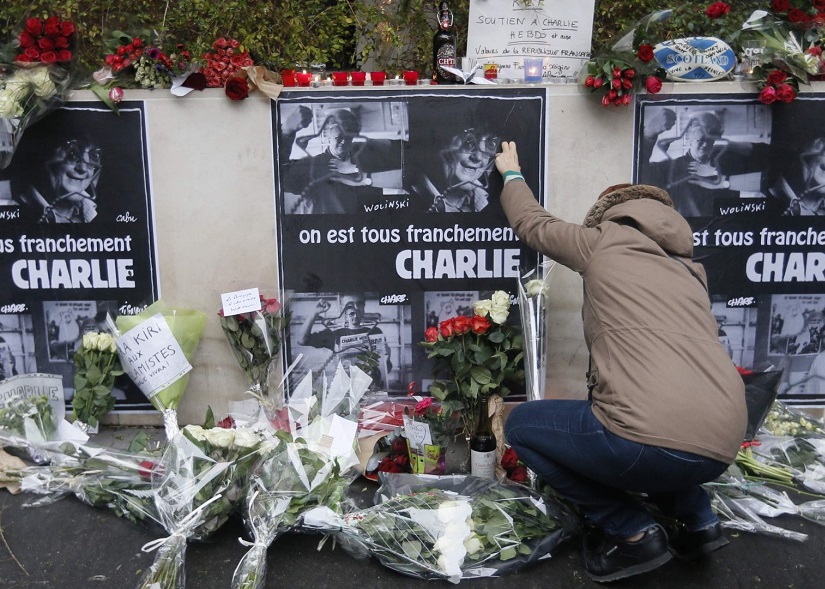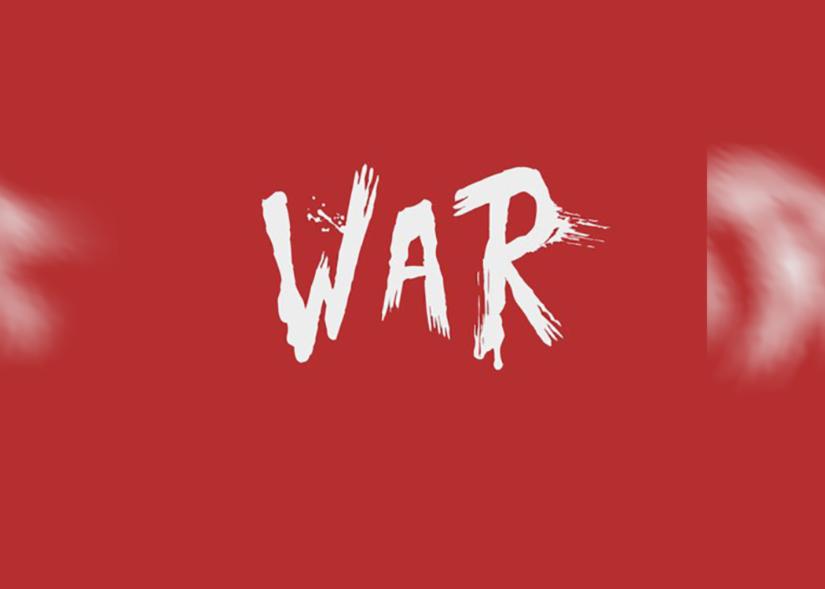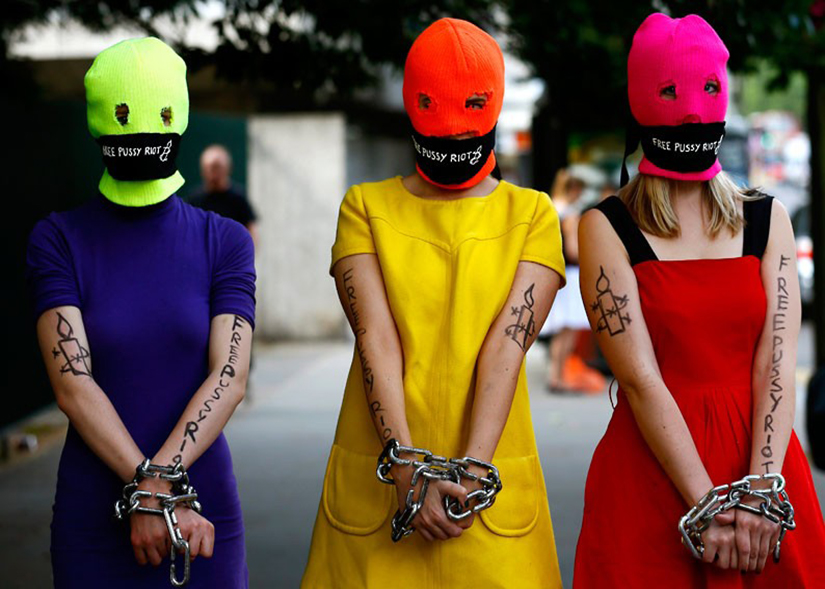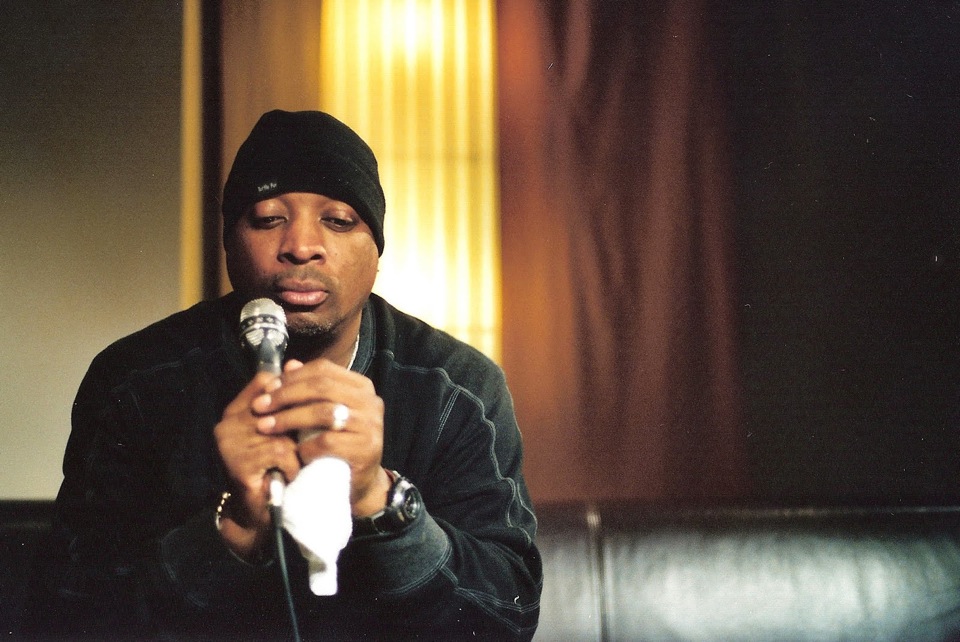2016 Republican Presidential Debate #1 - Hello, Cleveland!
The first Republican Presidential Debate was held last night. There were two of them if you counted the "Kids' Table" debate earlier, which included presidential hopefuls polling outside of the top 10. Anyone who tuned in hoping for the Donald Trump show was not disappointed since Trump was the event's main draw. The first question out of the gate was aimed at him, essentially asking, "Can you please promise not run as a third-party candidate?" Trump, pouting and nodding, said he wouldn't promise anything, won't rule out going rogue.
Kentucky Senator Rand Paul was the first to tussle with Trump on the main stage. Former Arkansas Governor Mike Huckabee made a sly dig at Trump in his closing statement, but instead shifted his focus to presumptive Democratic nominee Hillary Clinton. Leading establishment candidates like former Florida Governor Jeb Bush and Wisconsin Governor Scott Walker instead avoided direct or indirect engagement with Trump, trying to keep their distance from the lightning rod. Everyone's scrambling around Trump in some way, and it'll continue as long as the Donald is in the running. The laughs will keep coming.
Fox News' moderators during the big debate were Chris Wallace, Megyn Kelly, and Brett Baier. Each asked some surprisingly pointed questions of several of the candidates rather than serving up underhands and softballs. It was clear that part of the point of this first debate was to cull some of the herd, and Trump complained afterwards that he didn't think his questions were particularly fair (or balanced, wakka wakka wakka). It remains to be see if any culling will occur just one debate in. The next Fox-televised debates will be in Wisconsin in November (on Fox Business) and just ahead of the Iowa caucuses in January (on Fox News). Assuming the field remains as large as it is through Iowa, culling might continue to be the name of the game.
Let's do a brief rundown of the highlights, lowlights, winners, losers, and applause lines/zingers of the first Republican Presidential Debate.
On Cecil The Lion, Walter Palmer and the Morality of Hunting
Anyone with an internet connection can hardly have missed the outpouring of grief which accompanied Walter Palmer's murder of Cecil the lion outside Hwange wildlife sanctuary in Zimbabwe last month. The nature of Cecil's death was particularly nasty, having been lured from the sanctuary with meat, only to be severely wounded with a crossbow bolt and finished off, almost two days later, with a bullet. He was then decapitated, skinned and his corpse left to rot in the sun. That those responsible allegedly tried and failed to then destroy Cecil's tracking collar only adds to the sordid nature of the killing. Hunt guide Theo Bronkhorst and landowner Honest Ndlovu have both been charged with poaching by the Zimbabwean authorities. Walter Palmer returned to the US, but is now being sought for extradition.
The sordid business has reignited the debate surrounding the morality of trophy hunting, an industry, worth $190m in Africa, which revolves around people paying thousands of dollars to kill a wild animal under conditions guaranteed to ensure the hunter an easy, safe kill. That the hunters are almost invariably rich, white and Western adds an undercurrent of colonialist entitlement to the situation. For all the consensus on the nastiness of the act of hunting itself, reaction to Cecil's death has peripherally raised other questions about the hypocrisy of selective outrage and the wider, often ignored problems of humanity's role in selecting which species are permitted to live and which are not.
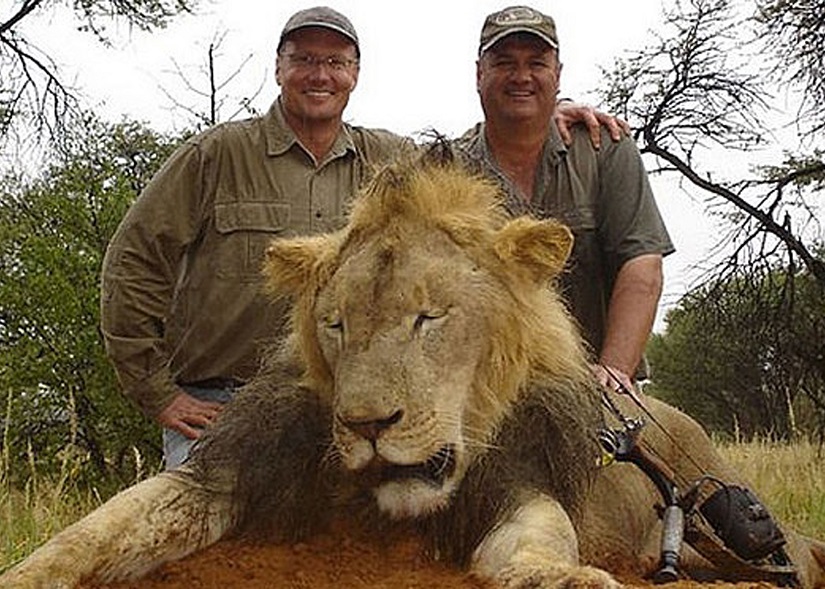
While plenty have flippantly asked why Cecil's death in particular has drawn such ire when hundreds of lions have been killed recently in Zimbabwe alone, there's nothing inherently wrong with taking one notable case as a starting point for asking questions about a wider issue. Just as we mourn family members and friends but not every single other human death on the planet, it is unrealistic to expect identical outpourings of grief towards animals of whom we have no direct understanding or knowledge, even if many share the concern over plummeting wildlife population numbers. The fact Cecil had a name and was beloved among those who knew him is indeed important, because it reminds us that if even this special lion can be so heartlessly butchered, what chance do the rest of them have?
Similarly, it is a false equivalence to ask why Cecil's death matters after he led a relatively long and free life when mistreatment of animals in the Western world is so prevalent, particularly when it comes to such practices as battery farming the animals producing the food which ends up on supermarket shelves. Animal welfare in all areas of life undeniably needs to be put under much greater scrutiny, but as shocking as Cecil's extended suffering prior to his death was, it was the exception rather than the rule for an industry which values 'clean' kills, if only for the hunter's pride and the inconvenience of having to track a wounded creature for hours and days afterwards to collect the trophy. The difference between battery farming and hunting is that, for its undeniable horrors, battery farming ultimately serves a purpose in creating food. Hunting means killing an animal for no other discernable reason than the hunter's personal pride.
The real issues arise from the resulting online outrage. Few would argue with the anger and grief which followed Cecil's death, but the form it has taken and the aims it has persued are considerably more problematic. The internet's lynch mob tendencies when it comes to online shaming has a profoundly negative track record when it comes to debating and reasoning out difficult issues. This can be attributed to the tendency for any voices dissenting from the consensus to be immediately shouted down, if not turned into a target themselves. It is morality by echo chamber, where right and wrong are absolutes and cruelty and injustice are called out not to improve the lives of others or make a fairer, more ethically sound world, but as a statement of one's virtue and for the approval of likeminded peers. It is a dangerous precedent which corrupts concepts of truth and free speech.
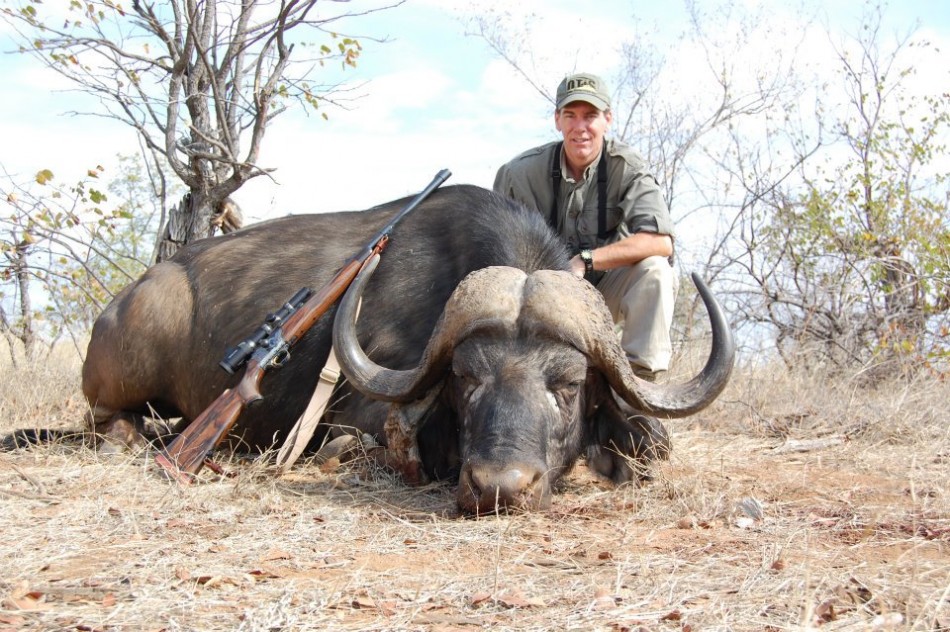
Consider the renewed calls for trophy hunting to be banned. On the face of it, this is an easy case to make: no living being should be destroyed for the sake of another's ego. The easiness of the target unfortunately means that any attempt to introduce complexity into the debate is roundly ignored, even condemned. In isolation, hunting is a deeply unpleasant practice. Paradoxically, it may also represent the best chance for many of the animals in question to be saved from extinction. There's no question that many of the benefits of hunting, as stated by its most ardent supporters, are grossly overblown. A 2013 study, for instance, revealed that little of the money generated by the industry ended up helping local communities in any meaningful way. Equally, the regulations in place to control the quotas of hunted animals is notoriously lax, while illegal hunting, as Cecil's case demonstrates, is rife. The dwindling numbers of many of the most prized trophy animals only further proves how horrendously mismanaged the whole situation continues to be.
The wrinkle is that hunting is far from being the only threat to these animals' survival. Less malicious, but arguably vastly more dangerous, is the ballooning human population growth in Africa, increasingly infringing on wildlife hunting grounds and consuming many of the resources they rely on to survive. This in turn leads to a rise in the number of animal attacks on humans, causing the animals to be hunted down either for retribution or as a guarantee of safety. An increase in population also means an increase in farming, requiring extensive grazing ground and only further eating into the territory where wildlife is able to sustainably survive. In Asia, the increased affluence of nations like China and Vietnam means demand for ivory and animal bone used in traditional medicines or as status symbols has skyrocketed, proportionately increasing their poaching value in relation to how stringently their trade is controlled or outlawed. That is to say nothing of the dangers of climate change, pollution and countless other factors: you can read more about those at the WWF website.
With corruption and mismanagement endemic in the systems supposed to protect the most vulnerable animals, it is no surprise that increasingly affluent and powerful poachers are coming up with more grotesquely innovative and technologically advanced methods of securing their prizes with every passing year. The sad truth is that humanity will inevitably kill off anything which does not have tangible value in being kept alive. For that reason, a properly regulated hunting industry may indeed play an instrumental role in one day guaranteeing the survival of certain species. If there is money to be made in breeding these animals to fund a profitable industry, even one revolving around their eventual deaths, humanity will find a way. If their survival relies on nothing more than sentiment, current and historical form suggests extinction is surely guaranteed.
Hunting is a deeply unpleasant practice, but to ban it outright may ultimately prove destructive in view of greater but less easily morally quantifiable threats to animal survival elsewhere. This is not to suggest that there may not be alternatives - this article for the New Yorker details how Rwanda has revived its gorilla population through ecotourist permits - but that relying on reactionary judgments rather than careful reasoning is not the way to find them. Hunting will almost certainly continue to exist, one way or the other. As despicable as its brutality is, it seems preferable to me that the human desire to kill animals be at least controlled and channelled in a productive and responsible way, even if we're a long way from that point right now, rather than being left solely to poachers and profiteers.
A concluding note for those who have participated in the witch hunt for Cecil's murderer, Walter Palmer. As Jimmy Fallon, of all people, very correctly pointed out, Palmer's conviction, or as some social media extremists childishly demand, death, ultimately achieves nothing. Yes, he should be held accountable for his crimes, but while focusing so much rage and attention on one man may satisfy one's personal thirst for vengeance and receive plenty of likes and retweets in the online echo chambers, it will neither bring Cecil back to life or help protect the countless other animals destined to be slaughtered as a result of illegal hunting and poaching. If anything, it merely proves that the motives of those calling for his death for their personal satisfaction are no better than those of the man himself. True justice is not taking an eye for an eye. Palmer turning Cecil into a trophy does not justify seeking to turn Palmer into one. Instead, to quote Fallon again, honour Cecil by making good from the tragedy of his death. Debate and donate. Don't blindly hate.
Inside Chicago Police's Secret Cell Phone Spying Agreement with the FBI
Post written by special guest contributor, Freddy Martinez.
Over roughly the last year I've worked to uncover quite a bit about cell phone spying that Chicago Police has been doing since at least 2008. CPD has been quietly purchasing IMSI catchers (usually called Stingrays), which they describe as “military-grade electronics” which act as fake, portable cell phone towers to track cell phones. These Stingrays are capable of identifying all cell phones in a given area (roughly 1 Km in diameter, depending on the power used) and “filtering” out to a given wanted IMSIs (roughly, a number plus other identifying information). The basic function of an Stingrays is to show up to an arbitrary location, begin transmitting as a “real” cell phone tower, invalidating your current phone connection and forcing your phone to hand over its information. This information could mean dialed numbers, text message information, even your voice content all without a warrant. Through the Freedom of Information Act (and two FOIA lawsuits), we have learned that CPD claims to have no written procedures for when these Stringrays are deployed and further that the police department claims to have no records of this “military-grade” equipment being checked in and out of their Technology Lab.
Across the country we have seen that police departments have been signing non-disclosure agreements (NDA) with the FBI and Harris Corporation which forces them to keep quiet on how Stingrays are deployed. In Erie County, New York, the ACLU fought all the way to nearly the Supreme Court of New York to force a police department to disclose its NDA. In fact, when CPD purchased their Stingray, they also signed an NDA with Harris and the FBI We have obtained a fully Non Disclosure agreement between from Chicago Police and the FBI and are publishing it here for the first time.
In analyzing the NDA, we notice this is the exact same NDA signed by the Erie County and CPD with the FBI and Harris Corporation. This indicated these agreements are boilerplate and used to hide critical records from the public. In fact, the police are not allowed to even buy the equipment unless they alert the FBI to routine public records requests. And both Erie County Sherrif'sand Chicago Police should “at the request of the FBI, seek dismissal of the case in lieu of using or providing, or allowing others to use or provide, any information concerning the Harris Corporation wireless collection equipment.” (page 6) So in the same breath that they claim this technology can save lives from dangerous criminals and terrorists, the case work could be thrown out at the direction on the FBI. It's a perplexing level of secrecy for local police to engage in.
Of course, the NDA is not just the entire story, but part of a pattern of secrecy around Stingrays and their use. As previously mentioned, CPD claims to have no record of ever deploying the Stingrays or checking it and out of Tech Lab. Yet at the same time, they claim that court records are exempt under US code (18 U.S. Code § 3123) Pen Register/Trap and Trace provisions, which was significantly expanded after 9/11, and which CPD claims as the legal basis for their authorization. This is particularly relevant since PR/TT does not require a warrant for records, which might conflicts with IL SB 2828 law for real-time location tracking. On top of the secrecy around FOIA, cops have gone so far as to invent Confidential Informations to attribute information to instead of showing Stingray use in court. And this pressure to local police seem to be coming from the top levels of Obama DoJ. All of this is organized from the federal level down and Chicago Police seems to have no issue with the vast secrecy.
As our FOIA case progresses, we hope to share further updates with readers in this space.
Is The Media Apologising For Terrorism In The Wake Of Charlie Hebdo?
It's been just over two weeks since the horrific attacks on the Charlie Hebdo offices in Paris, long enough for the initial surges of sadness and anger to die down and be replaced by something resembling more considered reflection. There's been considerable rumination on what the attacks mean for free speech and artistic expression, including by Ruby Hornet's own Hubert Vigilla, questions which eventually spawned a mini-debate of their own over whether Hebdo's representation of Muslims could be classed as racist. Elsewhere, many commentators haved raised the West's perceived responsibility in helping cultivate radicalisation as a result of mismanaged military incursions into the Middle East, notably the 2003 Iraq War.
More recently though, in addition to questions about why the Hebdo murders attracted so much more media attention than the slaughter of two thousand people by Boko Haram in Nigeria, another debate seems to have been gaining traction. This argues that, by the media so consistently using the attacks to raise questions about the West's actions elsewhere or to questions about the morality of the Hebdo covers at the root of the attacks, a process is taking place whereby the attackers themselves are having the responsibility for the murders lifted from their hands and transplanted into the laps of the culture and society which was attacked.
Despite being linked to recent events, the notion of the media being apologists for terrorist atrocities is not new. Its advocates have recently been linking to this blog post by (now deceased) political theorist Norman Geras, written in response to the London bombings in July 2005, a period when the Iraq War was still in its infancy and the world was still trying to make sense of the political and military landscape created in the aftermath of 9/11.
Geras argues that the pervasive culture in response to the bombings has been one of 'I told you so', where every mention of the tragedy of the bombings has to be suffixed with a reminder that it was our actions in the Middle East which must acknowledged as responsible for bringing these horrors to our doorstep. He goes on to mirror such reactions to the shaming of a rape victim rather than the rapist. In his words:
Bob, an occasional but serial rapist, is drawn to women dressed in some particular way. One morning Elaine dresses in that particular way and she crosses Bob's path in circumstances he judges not too risky. He rapes her. Elaine's mode of dress is part of the causal chain which leads to her rape. But she is not at all to blame for being raped.
The fact that something someone else does contributes causally to a crime or atrocity, doesn't show that they, as well as the direct agent(s), are morally responsible for that crime or atrocity, if what they have contributed causally is not itself wrong and doesn't serve to justify it. Furthemore, even when what someone else has contributed causally to the occurrence of the criminal or atrocious act is wrong, this won't necessarily show they bear any of the blame for it.
Others have argued that by using the terrorists' stated motives - blasphemy against the Prophet Muhamed - as a basis for condemning our own behaviour, we are perpetuating what this article by Yasmin Baruchi calls an 'us versus them' narrative, playing into the hands of extremist clerics using division as a tool of radicalisation. By debating whether Charlie Hebdo is racist against Muslims and accepting as a starting point that the cover in question was an act of blasphemy, Baruchi argues that rather than healing wounds, it has opened new ones by encouraging the perception that Muslims are mistreated, targeted and disrespected in Western society.
As author Jeremy Duns so succinctly tweeted on January 10th of this year:
Any fascist can murder cartoonists and simply say they were motivated by Abu Ghraib and somehow Bush and Blair share the blame. Brilliant.
There's a great deal in these arguments I disagree with. As was my response to Mr. Duns at the time, the danger of adopting these attitudes is that it risks encouraging the view that the West is nothing but a blameless victim, existing outside a cause-and-effect universe where events such as the occupation of a sovereign nation and power vacuum left behind can be given a free pass for possible consequences further down the line - even if those consequences involve our society subsequently becoming victims.
That, too, is where my issue with Mr. Geras' rape analogy arises. In this instance, the Charlie Hebdo attacks were undeniably a horrific attack on our culture and our society, yet Geras' metaphor (albeit for a different tragedy) neglects to take into account that such attacks are not isolated incidents but the latest in a long line, as tragic and shameful as the loss of life always is, but also inexorably linked to one another. Before these attacks, there were the myriad atrocities of the wars in Afghanistan and Iraq, as well as drone warfare in Pakistan. Before that, there was 9/11. Before that, there was the first Gulf War, and so on. This chain goes back a very, very long way, leaving scars inflicted by both sides as far back as history records. A more appropriate metaphor might be gang warfare, where both sides alternate between being the victims and perpetrators of violence.
Geras, Baruchi and Duns are correct in calling out commentators who use these tragedies as a means of gaining backdoor support for their political views in much the same way that extremist clerics do to radicalise their followers. Just as there must be a time for self-reflection, it is equally important to honour the victims with a period of apolitical mourning, when we acknowledge the sadness of more needless death without turning it into propaganda. Considering the long and violent history of conflict between Western and Islamic cultures and ideologies, the media's readiness to lay the threat of terrorism solely at the door of the Iraq War is undeniably short-sighted: as Salman Rushdie would attest, Islamic extremism is hardly an invention of the 21st century.
I am, however, far from convinced that to make such a case involves morally absolving the Hebdo killers of the entirety of the blame for their crimes. Myopic and politically motivated, perhaps, but reflecting on how a murderer's background might have led to their crimes is not the same as letting them go free or diminishing their sentence. It is searching for clues as to what led an atrocity to occur and what it might be possible to do to stop it happening again. Perhaps, in the case of preventing terrorism, that means recognising mistakes we might have made in the past. Perhaps it means accepting that sometimes evil exists simply because it can, using outside circumstances as an excuse to justify itself. Humanity's need to find order in chaos can often be misguided or misappropriated, but if by hook or by crook it ends with one fewer instance of bloodshed on either side, I'd say it's worth persevering with.
Common: "War"
Chicago hip-hop legend Common unexpectedly dropped this No I.D.-produced gem, "War" yesterday via the Internet. Long regarded as one of the more influential and insightful artists of his generation, the conscious rap king delivers what amounts to an address of the current state of affairs in Chicago right now. Throughout the track, Common takes ownership of his hometown's issues, asking the questions that need asking and prodding for something to be done. It's refreshing to hear Common release something socially and politically aware once again, in a tasteful manner that is both a call for change and a careful look at how and why things are the way they are ("politicians ain't did enough, wanna get rid of us"). There are rumors of a new Common album, Nobody Smiling, produced entirely by No I.D., as well as projects with Cocaine 80s and G.O.O.D. Music due out this year, so expect plenty more Common Sense. Stream below.
Pussy Riot Released From Prison
Two members of Russian all-women punk band Pussy Riot were released from prison two months early, after having spent nearly two years behind bars for performing a punk-infused protest in Christ the Saviour Cathedral in Moscow. The act brought hooliganism charges against three of the band's members, Nadezhda Tolokonnikova, Maria Alekhina and Yekaterina Samutsevich. Shortly after their sentencing Samutsevich was freed. Both Tolokonnikova and Alekhina, released just before Christmas day, issued a statement claiming their release to be a publicity stunt by the Kremlin, prompted by the impending Olympics in Sochi that have drawn stark criticism from world human rights leaders for the imprisonment of the band members, as well as noted repression of gay rights. For now, the pair have pledged to help inmates and continue working toward their progressive movement. Watch more on the story below.
[Via The Guardian]
[youtube id="ApS1Ip1ebZE" mode="normal" align="center"]
Chuck D: A Hero To Most
What more can you say about Chuck D, the front man for Public Enemy? Really, what can you say? So much ink, video reels, and audio tapes have been devoted to Chuck D and his musical brilliance that this intro is probably one of the most difficult that I have had to write in all my time of writing interview intros. I could write about Chuck D's rise to prominence with the groundbreaking force that was Public Enemy, the group that brought the noise, and said Elvis didn't mean s**t to them. I could also write about his days at Adelphi University where he rocked parties with the Bomb Squad and first met the Media Assassin Harry Allen. I could write about his early embrace of the internet and digital music, which is now manifested through his digital record label, SlamJamz. I could tell you that it was Chuck D who first identified Hip Hop as a form of CNN, and it has been Chuck D who has remained one of its top reporters and authorities. His commanding voice and equally charged lyrics have made Chuck D one of Hip Hop's greatest emcees, and his love of music and the art form have served as inspiration for countless individuals, myself included...
I had the chance to chop it up with Chuck D last week when he came to the Windy City for the Pitchfork Music Festival, where his Public Enemy performed their classic LP, It Takes A Nation of Millions To Hold Us Back. Prior to the performance, Chuck participated in a panel discussion with his fellow Bomb Squad members, dissecting the album, it's use of sampling, and the creation of Public Enemy. After the panel, Chuck and I spoke about the Def Jam days, Hip Hop's relationship with technology, the responsibilities of its curators, and the divide that needlessly exists between artists such as Soulja Boy and Dilated Peoples. Check it out to see "What Goes On!"

